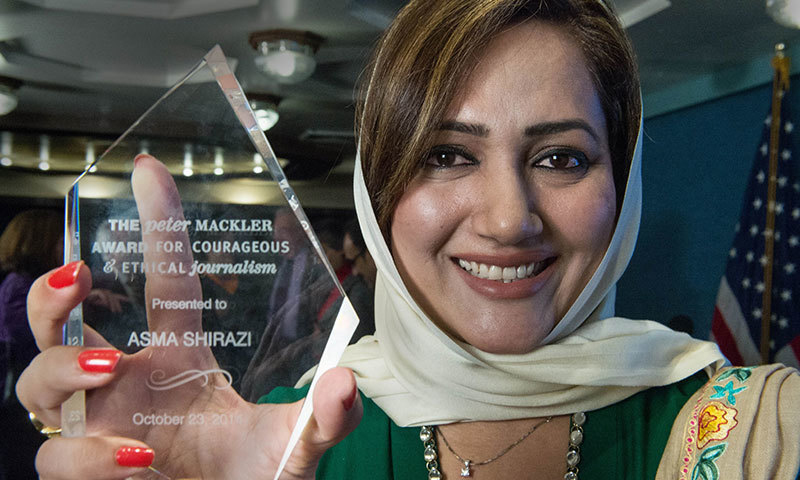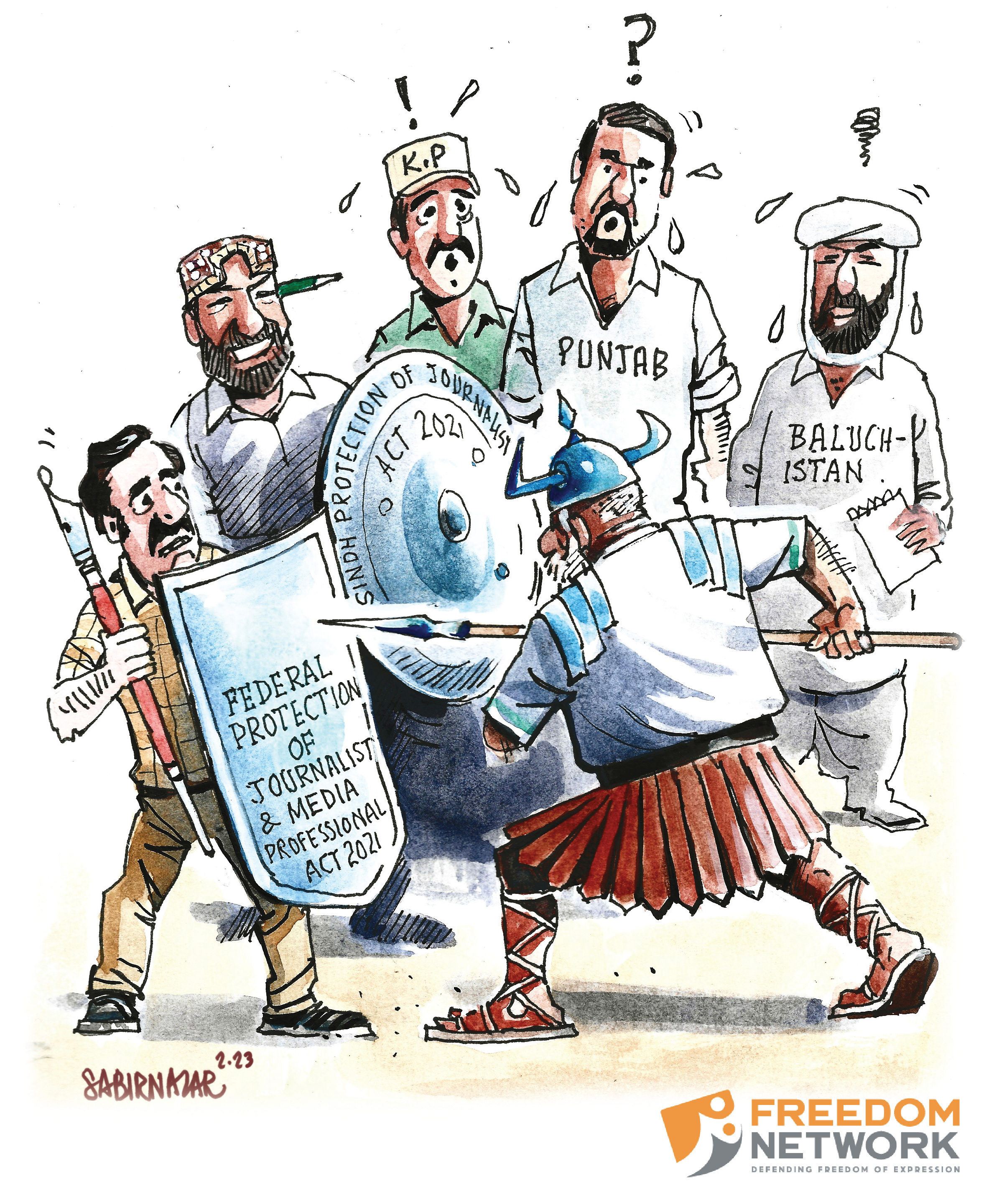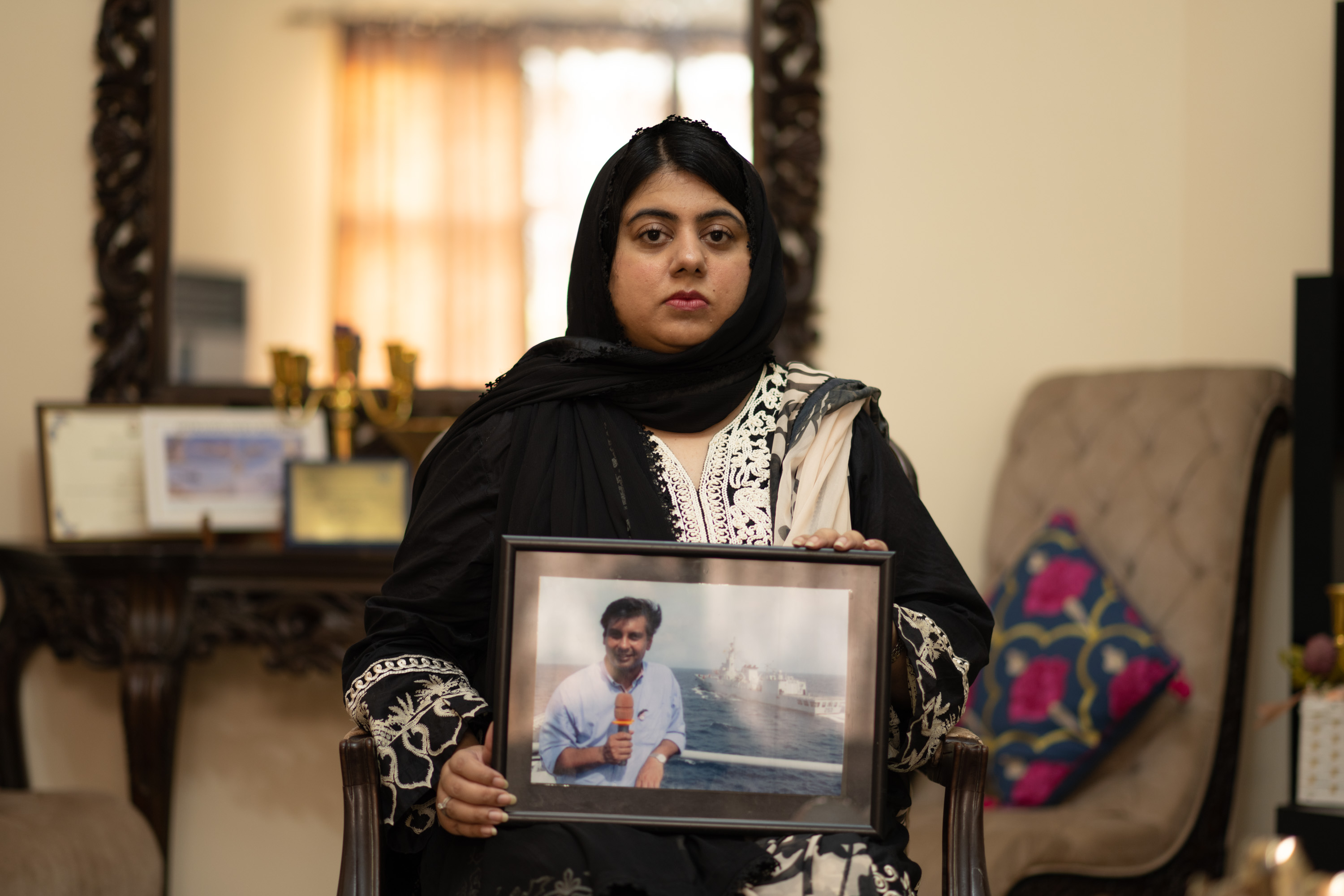Freedom Network marks the International Women’s Day paying tributes to female journalists for continuing to work in one of the most dangerous countries for journalists in the last few years – Pakistan.
“We are concerned by the absence of policy encouraging women in journalism in the country, but heartened by commitment and professionalism some female journalists shared with us,” Freedom Network [FN], Pakistan’s first media watchdog organization monitoring freedom of press, freedom of expression and helping build capacity and safety abilities of journalists, said on eve of the International Women’s Day falling on Sunday (March 8).
Read the short report on state of Gender in Journalism – 2015
Female journalists FN spoke with say the state of women in journalism was impeded with ‘discrimination’ they are facing and both the media organizations and the state were not adopting policies to encourage women in the profession.
“With issues clearly marked for this poor state of women in journalism need to be addressed by all media stakeholders and media development organizations need urgent interventions to reverse the situation,” FN launched a passionate appeal.
Figures that around seven percent women make up for ever-increasing number of journalists – from 2000 in 2002 to 18000 in 2014 – in the country testify in favour of what female journalists referred to while speaking to FN.
“What is more welcoming is that the profession since long been reserved for men is also joined by more women in Pakistan.”
Last year, Asma Shirazi became the first Pakistani journalist to win the Peter Mackler Award for her courage to stand up to challenges she faced while doing journalism.
Nearly two thirds of the 977 women journalists questioned in the International Women’s Media Foundation survey said they had been the “victims of intimidation, threats or abuse in connection with their work. In a third of the cases, the person responsible was their boss.
“Nearly half had been subjected to sexual harassment and more than a fifth to physical violence. Despite the psychological impact of this abuse, most of the victims say nothing.”
But some do. “I was often threatened by phone or in anonymous letters for two years (…) I was warned that I would be responsible for the deaths of members of my family if I did not stop working,” an Afghan woman journalist told Reporters Without Borders last year. In the end, she did resign but she went public about the harassment. Women in a patriarchal society often give up working because the authorities do not protect them and impunity is the norm.
It says that because, “they are women, the harassment often takes specific, gender-based forms, including sexual smears, violence of a sexual nature and threats against their families. The very fact of being a woman journalist is regarded in some societies as a ‘violation of social norms’ and may lead to reprisals.”
Caption: Ms Asma Shirazi holds the Peter Mackler Award
Poor State of Gender In Journalism in Pakistan
- March 7, 2015
- 10:28 am
- No Comments
More from the News section
September 18, 2023
No Comments
July 26, 2023
No Comments
June 20, 2023
2 Comments
March 21, 2023
No Comments
August 30, 2022
No Comments

Resize text-+=

